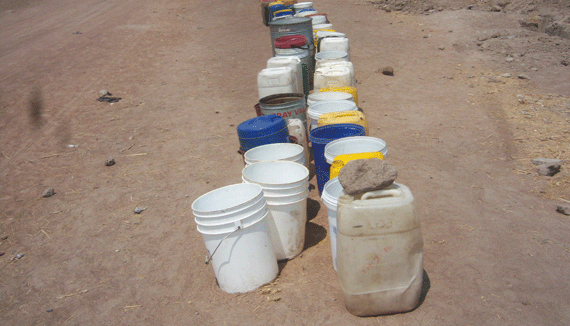
STAKEHOLDERS in Bulawayo have been advised to ensure that infrastructural developments made by the hosting of the African Union Region 5 Under-20 Youth Games are maintained to guarantee long-term economic benefit to the city. BATANAI MUTASA OWN CORRESPONDENT
Most sporting facilities around the city have lost their aura after hosting huge sporting events like the sixth All-Africa Games in 1995, which saw the construction of the Kumalo Hockey Stadium that was practically left idle after the tournament leading to its rapid deterioration.
Facilities such as Barbourfields and Luveve stadiums, Bulawayo Athletic Club and Bulawayo Swimming Pool, got major facelifts to enable the city to host the youth games, starting today.

Bulawayo Agenda director Mmeli Dube said the youth games would leave the city with facilities that have potential positive ripple effect on the city’s economic activity by attracting more tournaments and higher quality of sportspersons.
“This infrastructure speaks even more to the competitive advantage of the city because where there is infrastructure, investors will come in, so government needs to set a broader policy framework for scheduled maintenance, but the responsibility should cascade down to the local authority and individuals to ensure this legacy is preserved,” said Dube.
Dube said while the immediate economic benefits of the games were visible, it was disheartening to hear reports of tenders being awarded to companies from outside Bulawayo that brought in their own labour and equipment.
Earlier this year, Bulawayo Provincial Affairs minister Eunice Sandi Moyo and Sport, Arts and Culture minister Andrew Langa were confronted by a mess created by an allegedly skewed tendering process when they discovered that the majority of people employed at Luveve Stadium were from outside the area.
Policy expert Butler Tambo concurred with Dube saying there seemed to be a major challenge in empowering the city’s firms through awarding them first preference for business activities to be hosted in their domicile.
- Chamisa under fire over US$120K donation
- Mavhunga puts DeMbare into Chibuku quarterfinals
- Pension funds bet on Cabora Bassa oilfields
- Councils defy govt fire tender directive
Keep Reading
“However, the main gain is that the infrastructure has been set up and we can even look further than sporting facilities because such educational institutions like Hillside Teachers’ College and Bulawayo Polytechnic have been refurbished,” said Tambo.
He said with repairs effected as a result of the games, the city would be attractive venue for other huge events not only associated with sport and this could contribute to its revival.
Tambo added that the problem of infrastructure being left to deteriorate was not peculiar to Bulawayo and gave examples of the Chitungwiza Aquatic Complex, which is now being used for social functions and shows.
He said in South Africa most stadia built for the 2010 Fifa World Cup were now underutilised.
“In Bulawayo, business leaders and council should ensure that this does not happen because benefits of being able to host more tournaments are real, not only for formal business, but also for informal traders who are now an integral part of the economy,” he added.
He urged Bulawayo to lobby for devolution and to be declared as a special economic zone after the youth games to create a vibrant, self-sustaining and robust city that would be in control of its own resources.











